10 Amazing Health Benefits Of Radish Leaves
You will never discard the radish leaves once you learn their benefits.
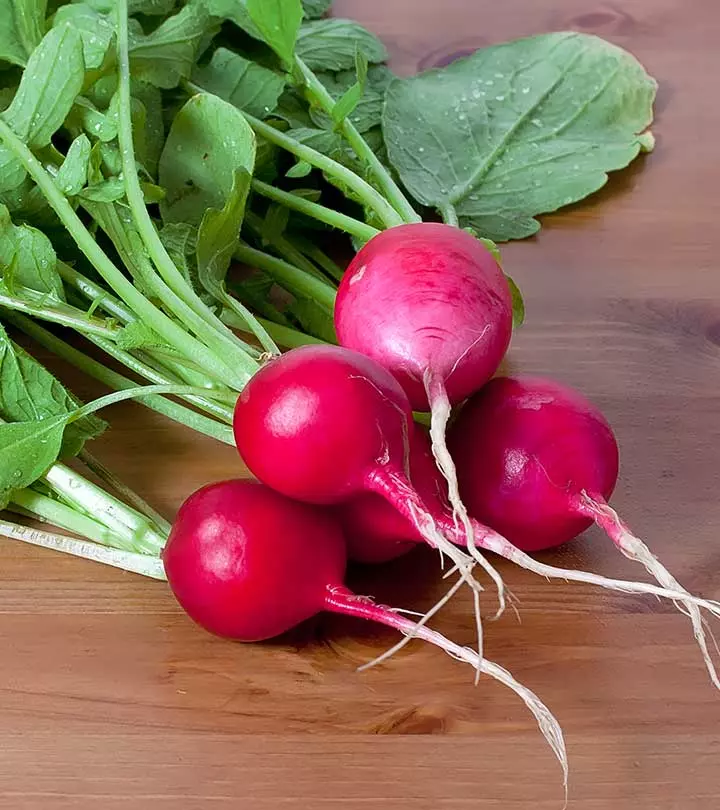
Image: shutter stock
While radish is commonly used in many vegetable salads and preparations, you might be throwing away its leaves. However, once you are aware of the radish leaves benefits, you may want to include them in your food as well. Surprisingly, the radish leaves contain more nutrients than the radish root itself! Enriched with important vitamins and minerals, they help keep a lot of illnesses at bay! Continue reading to learn more about the benefits of radish leaves and how to include that in your meals more often!

 Know Your Ingredient: Radish Leaves
Know Your Ingredient: Radish LeavesWhat Is It?
Leaf of the radish root that can be consumed.
What Are Its Benefits?
As a rich source of vitamins and minerals, radish leaf may improve digestive health and vision, prevent vitamin C deficiency, and help to treat piles, jaundice, diabetes, and rheumatism.
Who Can Use It?
Can be safely consumed by adults and children alike.
How Often?
Can be included in one’s daily diet in moderation.
Caution
No known side effects. However, over-consumption is better avoided.
In This Article
Health Benefits Of Radish Leaves
1. More Essential Vitamins And Minerals
our health, but its green parts contain more nutrients than the entire vegetable itself. They help provide a nutrient rich diet and also some important minerals like iron, calcium, folic acid, vitamin C and phosphorous that are essential for many bodily functions (1). Also, it contains vitamin A, which plays an important role in improving vision.
 Fun Fact
Fun Fact2. High In Dietary Fibers
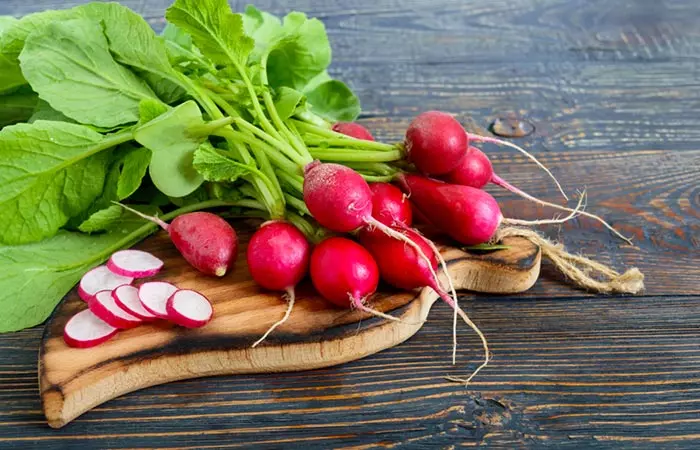
Radish leaves contain more roughage than radishes themselves. Fiber is known to help the digestive process and the additional roughage aids in the same. Fiber helps to keep you full for a longer time and reduces hunger pangs, which may help in weight loss. Radish leaves help keep uncomfortable conditions like constipation and a bloated stomach in check (2).
3. Increases Immunity And Reduces Fatigue

The high iron content of radish leaves makes it an ideal deterrent to fatigue. Radish leaves are high in minerals like Iron and phosphorous, which increase the body’s immunity. They also contain other essential minerals like vitamin C, vitamin A, thiamine, which help combat fatigue. Patients with anemia and low hemoglobin levels can benefit from ingesting radish leaves, as the iron present in the leaves will alleviate their medical conditions. (3)
4. Diuretic
Radish leaf juice is a natural diuretic. It helps dissolve stones and helps clear the urinary bladders. This property is also shared with radishes though, as they also exhibit diuretic properties. Radish leaves also demonstrate strong laxative properties that help ease constipation and a bloated stomach. (4)
5. Antiscorbutic
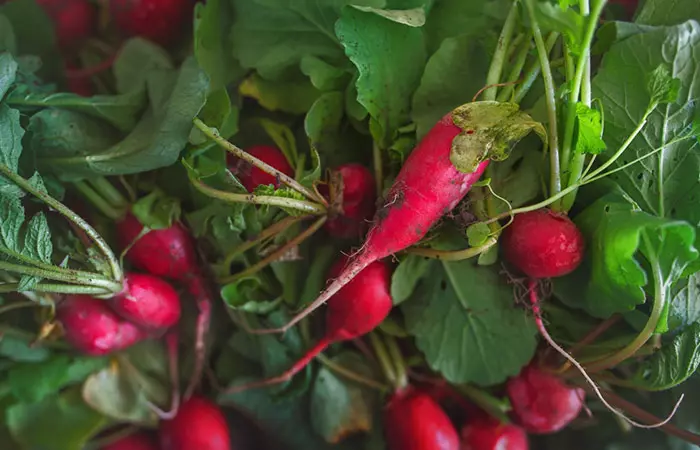
Radish leaves are antiscorbutic in characteristic. Put simply, they help prevent scurvy. It is hardly surprising to note as radish leaves do contain higher amounts of vitamin C than the roots and hence radish leaves exhibit stronger antiscorbutic properties than the roots.
Note: Along with other leafy vegetables in your meal, consume radish leaves once a week.
Leni, a food blogger, tried steaming radish leaves and served it with balsamic vinegar and radish slices. She gushes, “The deep sweet tang of the balsamic vinegar perfectly complimented the peppery taste of the radish greens! This simple and delicious dish was great both as a warm side dish and as a cold salad. I will never throw radish greens out again (i)!”
 Quick Tip
Quick Tip6. Treats Piles
Radish leaves have been proven to help treat painful conditions like piles.
Owing to the antibacterial properties that they contain, radish leaves help decrease swelling as it has anti-inflammatory properties. Powdered dry radish leaves mixed with equal amount of sugar and a hint of water can be mixed to form a paste. This paste can either be eaten or topically applied to the inflammation. (5)
7. Treat Jaundice

Radish leaves help treat diseases like jaundice, where the body suffers from hyperbilirubinemia (yellowing of skin). Radish leaves have been found to be efficient in reversing this condition. The leaves must be crushed and the extract must be sieved through a porous cloth. Having half a liter of this juice daily for ten days helps cure jaundice. Many herbal medicine stores stock radish leaf juice for people who don’t have time to extract the juice themselves. (6)
8. Rheumatism
Rheumatism is probably one of the most painful diseases in the world. The knee joints swell up and cause all kinds of discomfort. The extract of radish leaves mixed with an equal amount of sugar and a hint of water can be used to make a paste. This paste can be topically applied to the knee joints. The regular use of this paste can help relieve the pain and decrease the swelling. (7)
9. Helps Prevent Diabetes

Radish leaves have many properties that help them reduce blood sugar levels. Thus, radish greens are some of the most important foods to be included in a diabetic’s plan for diabetes management. Radish leaves help prevent diabetes by decreasing the already high blood glucose levels.
10. Detoxifying Agent
Radish leaves contain a host of essential nutrients. These nutrients and the antimicrobial and antibacterial properties of radish leaves help in detoxification of the body by flushing out toxins (8).
In addition, the presence of antioxidants such as anthocyanin, may help improve heart health and reduce risk of cardiovascular diseases (9). It also has vitamin C, which boosts collagen synthesis and maintains skin elasticity, which may help improve skin health (10).
All of radish leaves’ benefits come from their rich nutrition profile. Let’s take a quick look at it in the next section.
Nutritional Value Of Radish Leaves
Radish leaves are low in calories and rich in nutrients. According to the U.S. Department of Agriculture, 100g of cooked radish leaves contain (11):
- Calories: 55 kcal
- Carbohydrates: 6.47 g
- Protein: 3.49 g
- Fat: 2.73 g
- Fiber: 1.8 g
- Calcium: 41 mg
- Potassium: 583 mg
- Phosphorus: 75 mg
- Magnesium: 91 mg
- Iron: 0.99 mg
- Vitamin A: 128 µg
- Vitamin C: 53.8 mg
- Vitamin E: 1.7 mg
- Vitamin K: 160.2 µg
- Beta Carotene: 1409 µg
In order to enjoy the benefits of radish leaves, you need to learn how to incorporate them into your diet. The next section provides a recipe to help you get started.
Key Takeaways
- The antimicrobial properties of radish leaves may help in flushing out toxins from the body.
- Radish leaves can be considered a household remedy in treating jaundice and alleviating its symptoms.
- Radish leaves are high in iron that can boost immunity and tackle fatigue.
- Radish leaves may aid in digestion due to its high dietary fiber content.
Radish Leaves Recipe
Radish Leaves Stir-Fry
Ingredients
- Radish leaves
- 2 tablespoons of cooking oil
- 2 garlic cloves, minced
- ½ teaspoon of red pepper flakes
- Salt and pepper, to taste
Instructions
1. Thoroughly wash the radish leaves and chop them into bite-sized pieces.
2. In a large skillet, heat the cooking oil over medium heat. Add minced garlic and sauté for a minute.
3. Add the chopped radish leaves and stir-fry for 3 to 5 minutes or until they start to wilt.
4. Season with salt, pepper, and red pepper flakes.
5. Continue to stir-fry until the radish leaves completely wilt (for about 5 to 7 minutes).
6. Transfer it to a serving dish and enjoy with rice.
Apart from this recipe, there are numerous other ways to add radish leaves to your diet. The following section talks about them.
Other Ways To Add Radish Leaves To Your Diet
Here are some easy ways to incorporate radish greens into your daily diet:
- Add them to salads, soups, or stews.
- Blend them into sauces like pesto or marinara.
- Blend them into your green smoothies.
- Use them in wraps and sandwiches.
- Steam, saute, or stir-fry them for a simple side dish.
Infographic: 6 Incredible Benefits Of Radish Leaves
What if we told you that radish leaves that you discard in the trash has more nutrition than the radish itself? Surprised? Well, yes, that’s true. They are packed with vitamins and minerals and help to strengthen the immune system. Most importantly, they help maintain several body functions and promotes growth and development. Check out the infographic below to learn about the health benefits of radish leaves!
Some thing wrong with infographic shortcode. please verify shortcode syntaxThe benefits of radish leaves are numerous, and they can be easily added to your diet. Radish leaves are loaded with calcium, iron, folic acid, phosphorous, and vitamin C, which help manage many body functions. In addition, the high fiber of radish leaves helps relieve constipation. These leaves increase immunity, reduce fatigue, and act as a diuretic too. Try including them in your diet in moderate amounts. You may consume radish leaves juice or add them in curry to reap their benefits.
Frequently Asked Questions
Is radish leaves good for the kidneys?
Radish leaves are said to possess diuretic properties, which may help reduce the risk of kidney stone formation. However, limited data is available in this regard.
Are radish leaves toxic?
No, not all kinds of radish leaves are toxic, and they are edible.
Do radish leaves cause gas?
Radish leaves do not cause gas. Their powder is rich in dietary fiber, which helps improve digestion (12).
Can I eat radish leaves raw?
Yes. Radish leaves have the most delicate flavor and can be eaten raw.
Can you use radish leaves in a smoothie?
Radish leaves are tender and mild and blend perfectly with apples and bananas. Hence, you can use radish leaves in a smoothie.
Illustration: Amazing Health Benefits Of Radish Leaves
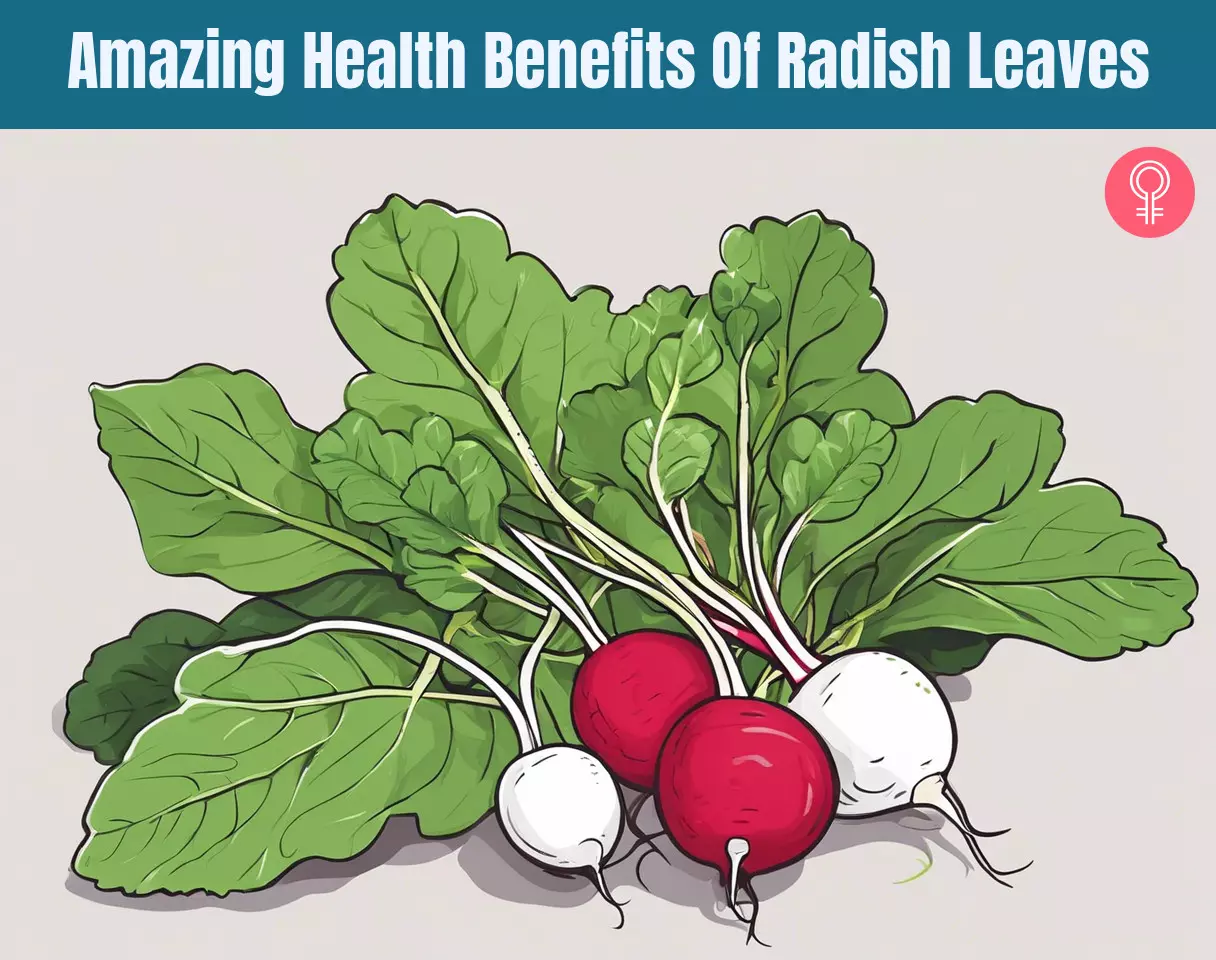
Image: Stable Diffusion/StyleCraze Design Team
Radish leaves are packed with nutrients and offer amazing health benefits. Learn how to incorporate them into your diet for a healthy boost in this video. Go, check it out!
Personal Experience: Source
StyleCraze's articles are interwoven with authentic personal narratives that provide depth and resonance to our content. Below are the sources of the personal accounts referenced in this article.
i. Can I eat radish leaves? Yes you can! Steamed Radish Greens with Balsamic Vinegarhttps://monamifood.wordpress.com/2013/09/18/can-i-eat-radish-leaves-yes-you-can-steamed-radish-greens-with-balsamic-vinegar/
References
Articles on StyleCraze are backed by verified information from peer-reviewed and academic research papers, reputed organizations, research institutions, and medical associations to ensure accuracy and relevance. Read our editorial policy to learn more.
- Radish Leaves
https://www.tarladalal.com/glossary-radish-leaves-mooli-ke-patte-mooli-ka-patta-503i - Radish Nutrition Facts
https://www.nutrition-and-you.com/radish.html - Radish – A Source of Bountiful Nutrition
https://www.medindia.net/health/diet-and-nutrition/radish-a-bountiful-of-nutrition.htm - Characterization of dehydrated functional fractional radish leaf powder
https://www.scholarsresearchlibrary.com/articles/characterization-of-dehydrated-functional-fractional-radish-leaf-powder.pdf - Anti-Inflammatory Activity of Raphanus sativus L in Acute and Chronic Experimental Models in Albino Rats
https://biomedpharmajournal.org/vol6no2/anti-inflammatory-activity-of-raphanus-sativus-l-in-acute-and-chronic-experimental-models-in-albino-rats/ - Radish Leaves Used for Jaundice
https://suzyseeds.com/blog/medical/radish-leaves-used-for-jaundice - Benefits Of Radish
http://drsimran.expertscolumn.com/article/benefits-radish - Radish Leaves
https://www.medindia.net/health/alternative-medicine/ayurveda-and-diet/herbal-plants/radish-leaves.htm - Anthocyanins in Cardiovascular Disease
https://www.ncbi.nlm.nih.gov/pmc/articles/PMC3042791/ - The Roles of Vitamin C in Skin Health
https://www.ncbi.nlm.nih.gov/pmc/articles/PMC5579659/ - Bitter melon, horseradish, jute, or radish leaves, cooked
https://fdc.nal.usda.gov/food-details/1103168/nutrients - Leaves of Raphanus sativus L. Shows Anti-Inflammatory Activity in LPS-Stimulated Macrophages via Suppression of COX-2 and iNOS Expression
https://www.ncbi.nlm.nih.gov/pmc/articles/PMC5383142/
Read full bio of Silky Mahajan
Read full bio of Tanya Choudhary
Read full bio of Ravi Teja Tadimalla
Read full bio of Himanshi Mahajan





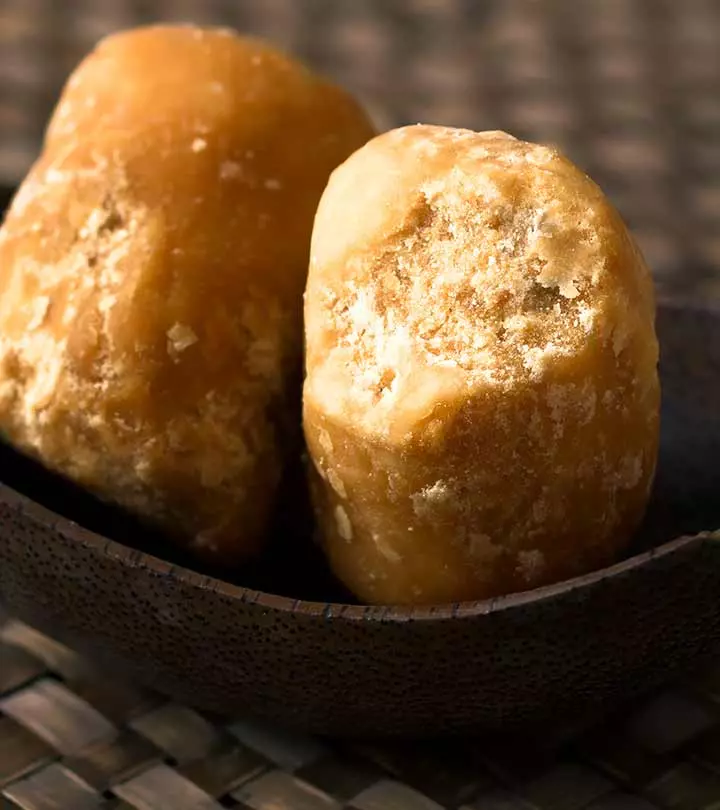
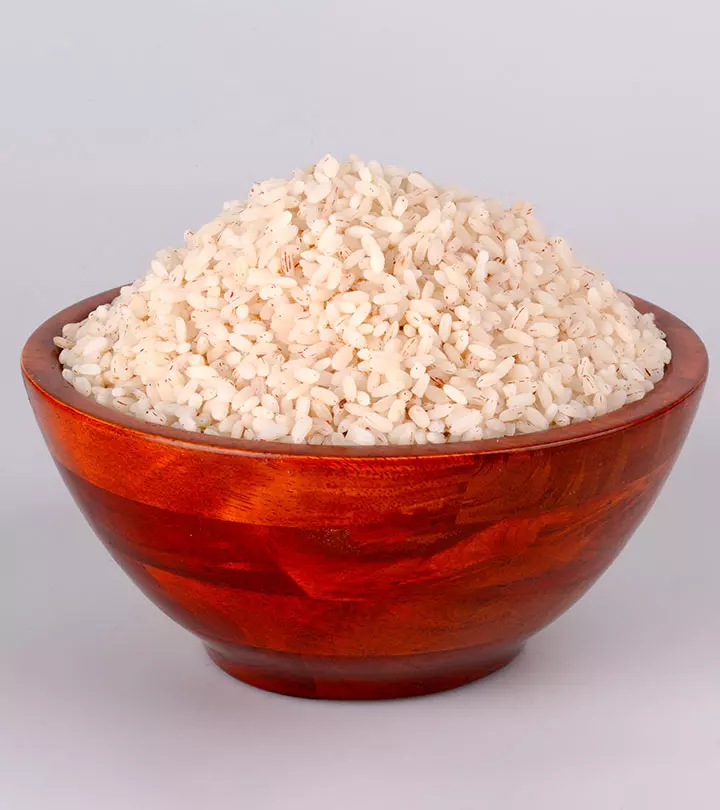
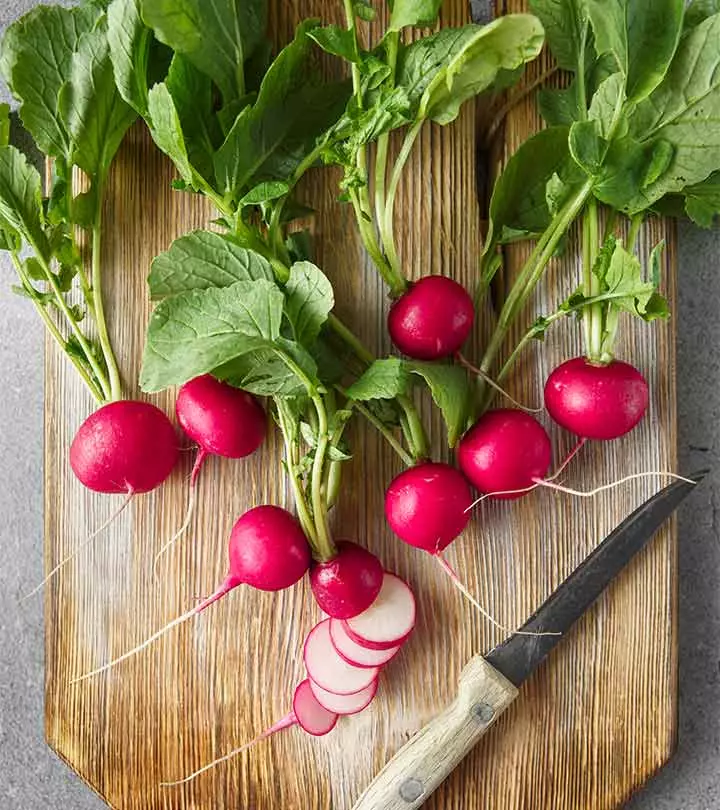
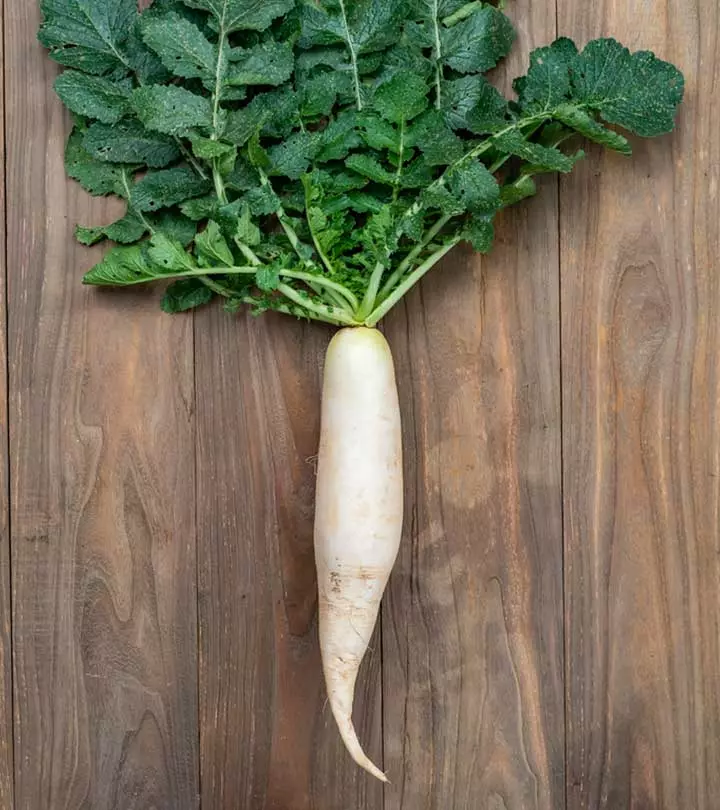

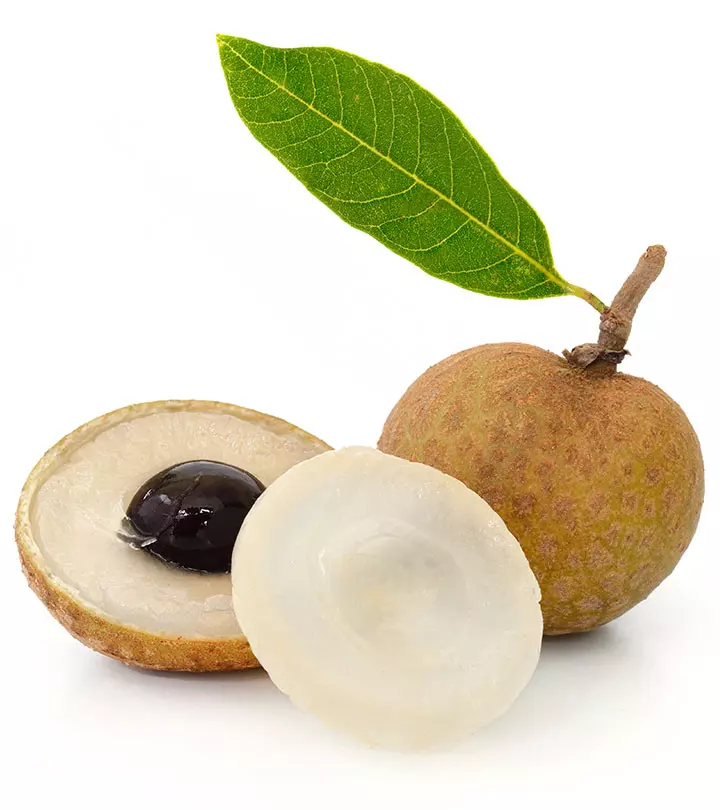
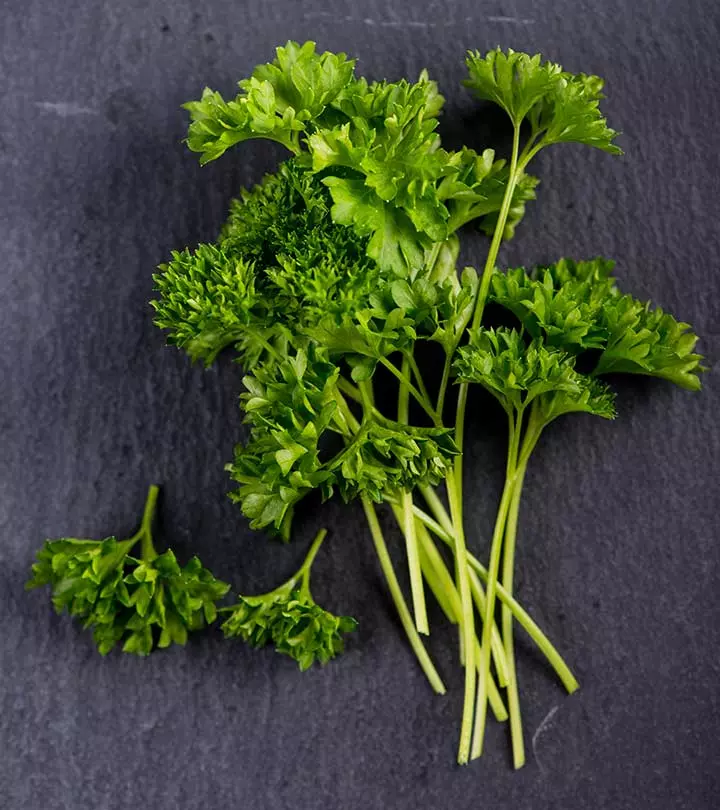
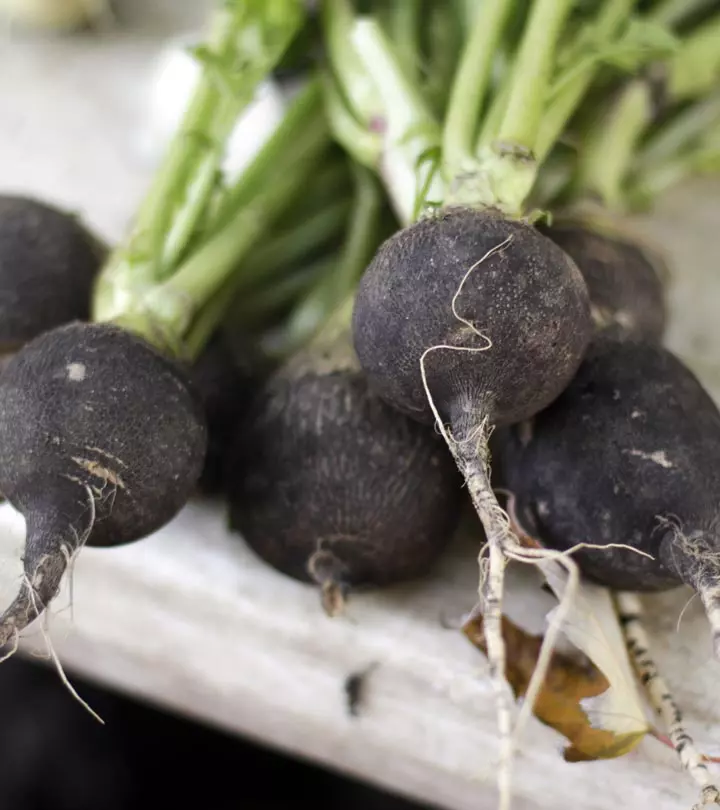
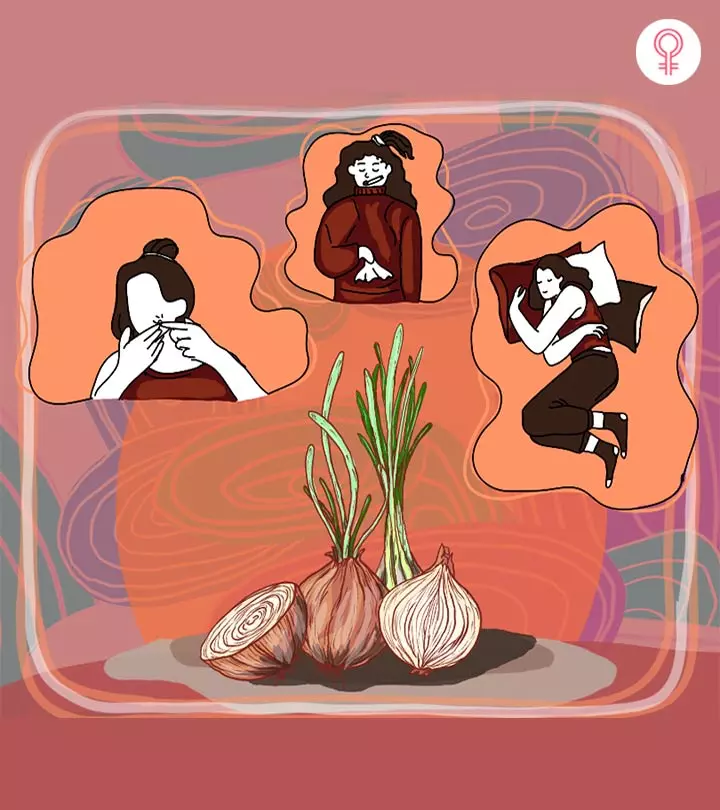



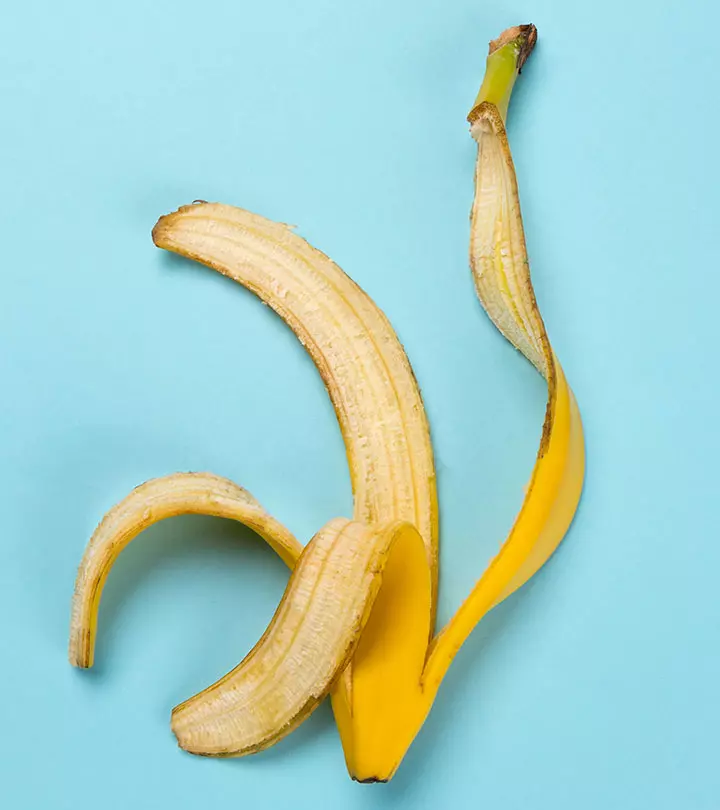
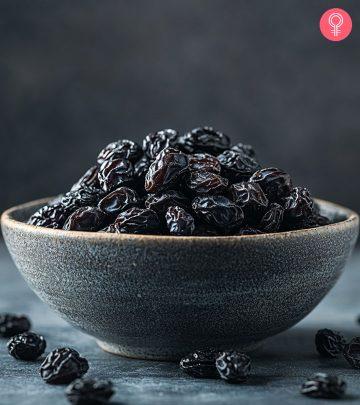

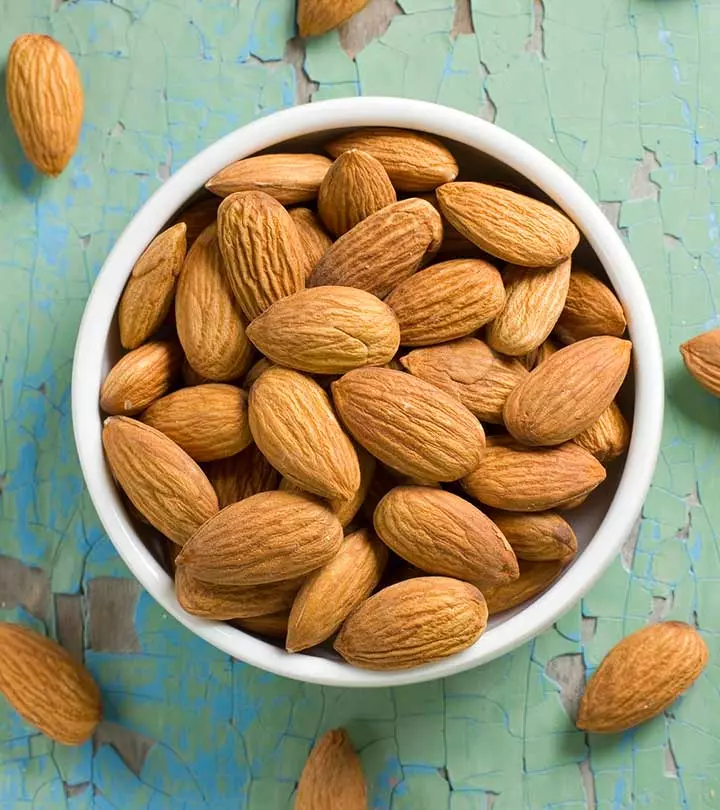
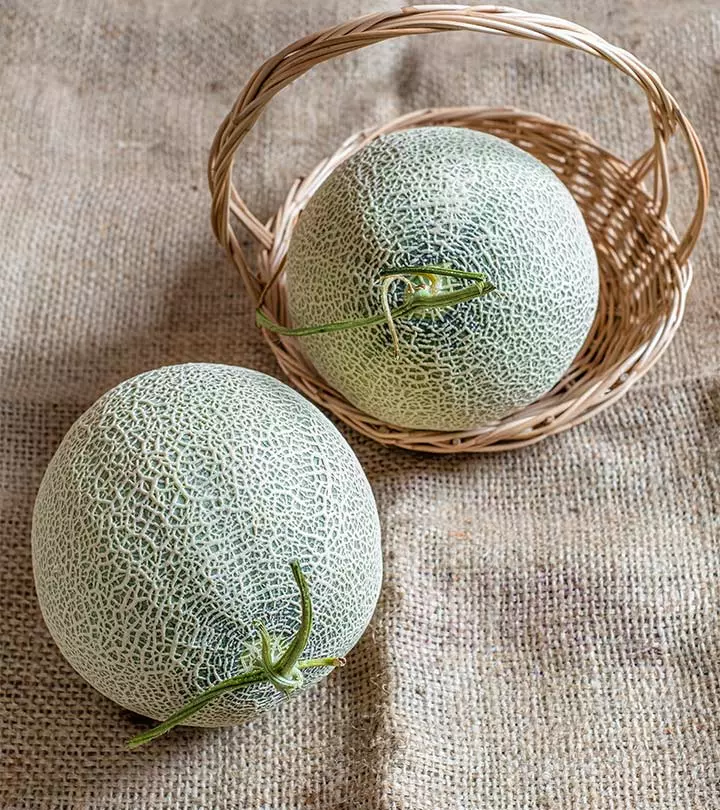
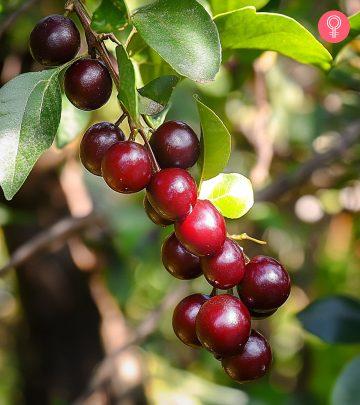
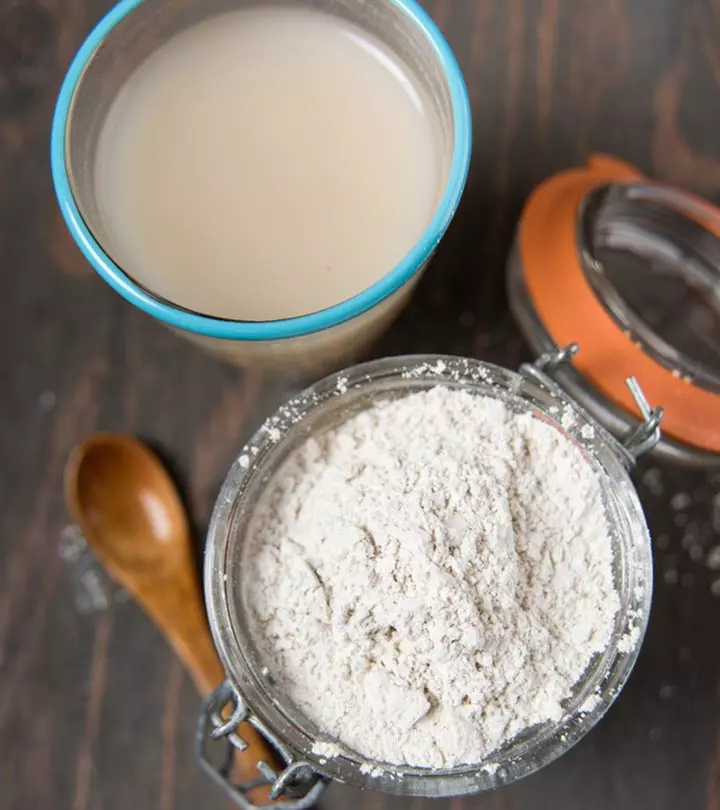
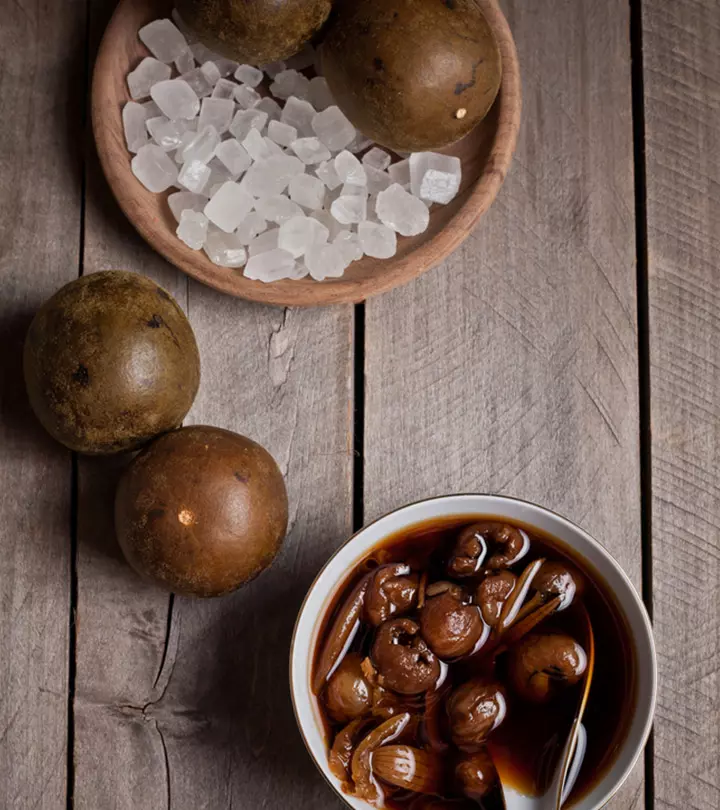

Community Experiences
Join the conversation and become a part of our empowering community! Share your stories, experiences, and insights to connect with other beauty, lifestyle, and health enthusiasts.